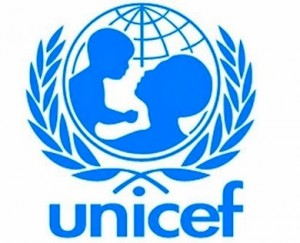Translate commitments to invest in children into action – UNICEF
 At the close of the Third International Conference on Financing for Development, UNICEF has challenged the international community to turn its promises to invest in children and young people into concrete action.
At the close of the Third International Conference on Financing for Development, UNICEF has challenged the international community to turn its promises to invest in children and young people into concrete action.
According to a statement issued by Elissa Jobson, UNICEF and copied to the Ghana News Agency over the weekend, this concrete action would reduce inequities and provides every child with a fair chance in life.
It said UNICEF welcomes the Addis Ababa Conference’s recognition that investing in children and young people is “critical to achieving inclusive, equitable and sustainable development”.
It noted that this represents a significant shift away from the perception of children as passive recipients of social spending towards viewing them as agents of future growth and development.
The statement observed that UNICEF also supports the Conference’s acknowledgement of the “vital importance of promoting and protecting the rights of all children, and ensuring that no child is left behind,” believing that this provides a strong basis for final negotiations on the post-2015 development agenda, including the Sustainable Development Goals (SDGs).
“Here in Addis Ababa member-states have agreed on a global road map for development finance that recognizes in much stronger words than previous agreements that investing in children is central to inclusive and sustainable growth,” said Yoka Brandt, UNICEF Deputy Executive Director.
“The Addis Ababa Action Agenda puts a strong emphasis on equity, on reaching the most vulnerable. Combined with the Sustainable Development Goals, which also give clear priority to the interests of children and equity, we now have a robust, new global foundation for making the world fit for children.,” she added.
The statement said, however, UNICEF warned against complacency and calls upon the international community to build on the commitments made in Addis Ababa by prioritizing investments in basic universal services such as education, social safety nets, health care, immunization, water and sanitation and child protection; and identifying and targeting groups and communities with the greatest needs.
Others were progressively mobilizing additional resources to address financing gaps in underfunded SDG priority areas with the greatest impacts for children such as nutrition, children protection and early childhood development; and improving reporting on child-related spending including documenting how much funding goes to groups or areas with greater incidences of child deprivation.
“We must make sure that the most vulnerable and disadvantaged children are at the heart of the SDGs, and at the heart of how we go about mobilising the financing that is needed to achieve these goals,” Brandt said.
“We have a unique opportunity to translate commitments and promise and into action. To turn rhetoric into practical results for all children,” she stated.
UNICEF works in more than 190 countries and territories, to help children survive and thrive, from early childhood through adolescence.
The world’s largest provider of vaccines for developing countries, UNICEF supports child health and nutrition, good water and sanitation, quality basic education for all boys and girls, and the protection of children from violence, exploitation, and AIDS.
UNICEF is funded entirely by the voluntary contributions of individuals, businesses, foundations and governments.
Source: GNA
